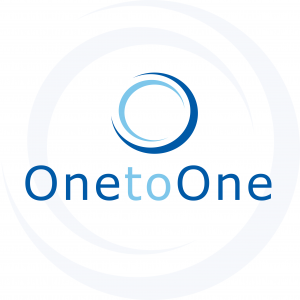
What Businesses and HR Managers Should Know
Artificial Intelligence is fundamentally changing how businesses manage recruitment. From automating candidate sourcing to assessing applicants’ soft skills, AI is transforming the recruitment process, allowing HR teams to operate more efficiently while improving the quality of hires. However, as with any technology, there are risks and challenges that businesses and HR managers need to be aware of to fully leverage AI's potential.
In this article, we’ll dive into what businesses need to know about AI in recruitment, and what HR managers should watch out for to ensure AI complements rather than replaces the human element.
What HR Managers and Businesses Should Look Out For
For businesses and HR managers, AI offers an opportunity to enhance recruitment efficiency, reduce bias, and improve hiring outcomes. However, it’s important to understand the limitations and potential pitfalls that come with adopting AI-driven hiring tools.
- The Risk of Algorithmic Bias - One of the greatest challenges of AI in recruitment is algorithmic bias. AI systems are trained on historical data, and if that data reflects biased hiring practices, AI may inadvertently perpetuate those biases, leading to unfair outcomes and missed opportunities for diverse candidates.
- Tip for HR Managers: Regularly audit AI hiring tools for potential biases. Ensure the data used to train AI models is diverse and representative of the talent pool you want to attract. Consider using a blend of AI and human decision-making to safeguard against unintentional discrimination.
- Striking a Balance Between Automation and Human Interaction - While AI excels at managing large applicant pools and speeding up repetitive tasks, it cannot replace the human element of recruitment, especially for roles that require emotional intelligence, leadership, or cultural fit. Over-relying on AI can lead to a transactional experience for candidates, potentially alienating top talent.
- Tip for HR Managers: Use AI for efficiency, but ensure human interaction remains a critical part of the recruitment process. Candidates still value personal engagement, especially for mid- to senior-level roles. AI can handle initial screenings and administrative tasks, but human oversight is essential for final decision-making.
- The Importance of Data Privacy - AI systems process vast amounts of personal data during recruitment. This raises concerns about data security, privacy, and compliance, particularly in industries that handle sensitive information. Businesses must ensure that their use of AI aligns with data protection regulations such as GDPR.
- Tip for HR Managers: Work closely with IT and legal teams to ensure AI recruitment tools are compliant with data privacy laws. Be transparent with candidates about how their data is being used, stored, and protected throughout the recruitment process.
- Flexibility in Candidate Screening - AI systems can sometimes be overly rigid, filtering out candidates who may not tick every box but have strong potential in other areas. This is especially true for candidates from non-traditional backgrounds or those with transferable skills that don’t match the exact keywords in a job description.
- Tip for HR Managers: Program AI to focus on essential qualifications while being flexible with secondary criteria. This can prevent missing out on high-potential candidates who may not have a linear career path but possess valuable skills.
Conclusion: Enhancing Recruitment with AI, Without Losing the Human Touch
AI is revolutionising recruitment by making it faster, more efficient, and more data-driven. For businesses, AI offers significant advantages in streamlining workflows and reducing time-to-hire. For HR managers, AI can assist in identifying top talent and improving hiring outcomes. However, it’s crucial not to over-rely on AI to the detriment of human interaction.
Businesses that strike the right balance between AI-driven automation and human insight will find themselves better positioned to attract and retain top talent in an increasingly competitive market.
By embracing AI thoughtfully, businesses and HR professionals can harness its power to enhance recruitment while still fostering meaningful connections with candidates—leading to stronger, more diverse, and more engaged teams.





